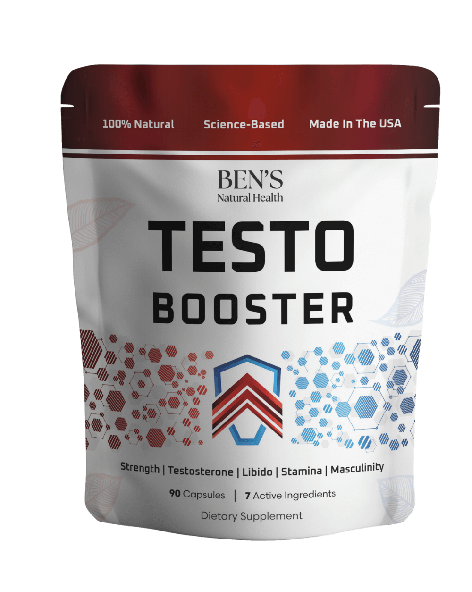- Q: What Is Apple Cider Vinegar and Why Has It Become So Popular?
- Q: What Is a UTI and How Does It Affect the Body?
- Q: Does Apple Cider Vinegar Help UTIs or Other Urinary Infections?
- Q: Are There Other Natural Remedies for UTIs or At-Home UTI Treatments?
- FAQs about Apple Cider Vinegar for UTI Relief, Prevention, and Urinary Health
- Conclusion
- Our Medical Review Process
- Our Editorial Guidelines
- Medical Disclaimer
- Source
The urinary tract plays an essential role in helping the body eliminate excess fluids and toxins. Sometimes, bacteria or other harmful microorganisms can attach to parts of the urinary system, leading to urinary tract infections Although urinary tract infections (UTIs) are more common in women, men can also get them.
Research shows that the risk of a UTI increases with age in men, with a lifetime prevalence of up to 14%. This article takes a closer look at whether apple cider vinegar is a feasible option for treating UTIs.
To ensure a comprehensive and accurate discussion of apple cider vinegar UTI, we conducted an in-depth interview with Dr. David Letsa, a licensed medical doctor. During the interview, Dr. Letsa provided evidence-based answers to direct questions regarding the use of apple cider vinegar for UTI and its potential effects on related conditions, such as cystitis.
The insights shared by Dr. Letsa specifically address patient concerns, including “Can apple cider vinegar help with urinary tract infections?” and “Is apple cider vinegar good for UTI?” All content in this article has undergone review and is grounded in medically sourced information, ensuring reliability for readers seeking guidance on natural remedies for UTI and safe at-home UTI treatment options.
Q: What Is Apple Cider Vinegar and Why Has It Become So Popular?
Dr. Letsa answers: Apple cider vinegar has gained widespread popularity recently, although its use dates back centuries in traditional and folk medicine. Essentially, apple cider vinegar is a type of vinegar that manufacturers produce by fermenting apple cider, which itself is derived from apples. Due to this fermentation process, apple cider vinegar contains acetic acid along with various vitamins, minerals, and bioactive compounds.
Historically, apple cider vinegar has been touted for its potential benefits in preventing urinary tract infections and addressing other health concerns. Modern scientific research has recently shifted its focus toward these traditional claims. There is emerging evidence that apple cider vinegar may play a role in managing diabetes, and some studies suggest it may also aid in weight loss.
However, it’s essential to acknowledge that while some results are promising, the clinical evidence supporting the use of apple cider vinegar for UTIs or other specific health conditions remains limited. In the context of apple cider vinegar treatment for UTIs, ongoing research is being conducted to clarify its role; however, it should not currently be considered a first-line therapy for active infections.
Get Your FREE PSA Lowering Diet Plan!
- Naturally lower PSA levels
- Reduce nighttime trips to the bathroom
- Enjoy better bladder control and urine flow
Q: What Is a UTI and How Does It Affect the Body?
Dr. Letsa answers: A urinary tract infection or UTI is a type of infection that affects part of the body’s urinary system, including the bladder, kidneys, ureters, or urethra. The urinary tract’s main function is to carry urine out of the body, and any one of these structures can become infected with pathogenic microorganisms such as bacteria.
In men, common sites of infection are the bladder (cystitis), the urethra (urethritis), and, less commonly, the kidneys (pyelonephritis). Urethral infections are particularly prevalent, with bacteria like Escherichia coli (E. coli) often implicated in cases of acute and recurrent UTIs.
The urethra is a small tube originating at the bladder that runs through the penis, ultimately serving as the pathway for urine to exit the body. An untreated urinary tract infection can begin in one part of the system, often the urethra, and ascend to affect the bladder or even the kidneys, increasing the risk of serious complications. That’s why prompt recognition and proper at-home UTI treatment or medical care are crucial.
Q: Does Apple Cider Vinegar Help UTIs or Other Urinary Infections?
Dr. Letsa answers: There’s a lot of online buzz about apple cider vinegar as a remedy for urinary tract infections, sparking common search queries such as “does apple cider vinegar help UTI,” “is apple cider vinegar good for UTI,” and whether apple cider vinegar can help with bladder infection or cystitis. The idea is that the active chemicals in apple cider vinegar will travel through the body, reach the urinary tract, and destroy the bacteria responsible for infection.
However, current medical evidence does not confirm that apple cider vinegar is an effective treatment for active UTIs. No robust clinical studies have proven that apple cider vinegar is effective in curing or fully eradicating UTIs, so it is not recommended as a primary therapy for ongoing infections.
With that being said, laboratory research demonstrates that apple cider vinegar possesses general antibacterial properties, primarily due to its acetic acid content. For instance, a study indicates that apple cider vinegar can inhibit pathogens… in laboratory (in-vitro) conditions, which do not necessarily translate to effectiveness in the human urinary tract.
Another study tested the effect of apple cider vinegar and its active compounds against five species of bacteria known to cause various infections. However, these findings do not conclusively prove that apple cider vinegar will treat the most common bacteria associated with a UTI or consistently provide bladder infection ACV therapy.
As a result, while apple cider vinegar is not a proven cure for UTIs, it may play a role in preventing or reducing the recurrence of infections in individuals prone to frequent infections. For those asking, “How to use apple cider vinegar for UTI” or “Apple cider vinegar remedy for UTI prevention,” small daily amounts diluted in water, green tea, or unsweetened cranberry juice may offer some benefits for urinary health. Importantly, raw and unfiltered varieties are commonly preferred for general wellness, although there is no evidence that this form is more effective for urinary health, as it may contain trace nutrients, though not significant amounts of vitamin C. Vitamin C functions as a powerful antioxidant independently supports urinary tract health, although ACV itself is not a meaningful source, especially in cases of recurrent UTI.
It is crucial, however, not to rely on apple cider vinegar for UTI, especially if you have symptoms of a kidney infection (such as fever, chills, or flank pain), which require urgent medical attention, as it is not a substitute for antibiotics or physician-guided therapy. Additionally, never consume undiluted apple cider vinegar, as its acidity can harm your tooth enamel and digestive tract. It’s safer to add it to water, tea, or even lemon juice to reduce its harshness.
For those interested in using apple cider vinegar baths for UTI relief, be aware that there is also a lack of scientific evidence supporting the efficacy and safety of this method. Therefore, it is not generally recommended by urologists as a therapy for bladder infections at this time.
Q: Are There Other Natural Remedies for UTIs or At-Home UTI Treatments?
Dr. Letsa answers: Alongside apple cider vinegar UTI strategies, several other natural approaches are frequently discussed for urinary tract issues. However, it’s essential to understand that most natural remedies for UTI are preventative and should not replace antibiotic therapy for an active infection. If you’re experiencing symptoms, such as painful urination or urinary urgency, see a healthcare provider as soon as possible.
Drinking generous amounts of fluid, especially water, is a cornerstone of at-home UTI treatment. Increased fluid intake helps flush out bacteria from the urinary tract, providing some degree of instant UTI relief. Ensuring optimal vitamin C intake also has a supportive effect, as this nutrient can acidify the urine and reduce bacterial growth.
The best-known natural preventive remedy is cranberry juice. Research indicates that cranberry juice and cranberry supplements help prevent bacteria, such as E. coli, from adhering to the walls of the urinary tract, thereby reducing the risk of infection, which is why many people choose cranberries as a natural remedy for UTIs. Still, it is more effective for prevention than for treating an established infection.
For those inquiring about alternative home remedies, such as using apple cider vinegar for cystitis, bladder infections, or whether vinegar is effective for UTIs, these may be beneficial as supportive or preventive measures only. Once you have a UTI, prescription antibiotics provide the fastest and most thorough elimination of bacteria. After recovery, maintaining healthy habits such as adequate hydration, a diet rich in vitamin C, cranberry juice, or moderate daily consumption of apple cider vinegar (properly diluted) can help decrease the recurrence of UTIs.
In summary, while many people seek apple cider vinegar (ACV) for UTI as a means of “instant UTI relief,” it is always best to treat active infections with physician-guided therapy and use natural and at-home strategies for ongoing support and prevention.
FAQs about Apple Cider Vinegar for UTI Relief, Prevention, and Urinary Health
Q: What is the typical apple cider vinegar dosage for UTI prevention?
Dr. Letsa answers: Most medical experts recommend proven strategies, such as drinking plenty of water, urinating frequently, and seeking medical attention for a diagnosed infection. However, apple cider vinegar provides several pharmacological effects and antioxidant properties.
To try it as a preventive measure, the commonly suggested dosage is to dilute 1 to 2 tablespoons of apple cider vinegar in a glass of water and optionally add a teaspoon of honey for taste, and take it once or more per day.
Q: Can apple cider vinegar for cystitis be effective or cause any side effects?
Dr. Letsa answers: Cystitis is inflammation of the bladder, often caused by a bacterial infection (a UTI). While apple cider vinegar is a popular home remedy, its effectiveness for treating or preventing cystitis is not supported by strong scientific evidence. The most important course of action for cystitis is to consult a healthcare provider for a proper diagnosis and treatment. If a bacterial infection causes cystitis, antibiotics are typically required to clear the infection and prevent it from spreading to the kidneys.
Q: What precautions should you take when using apple vinegar for UTI, especially if you take other medications?
Dr. Letsa answers: Apple cider vinegar may be unsafe when applied to the skin or consumed in large amounts if it is not properly diluted. The most essential precaution when considering apple cider vinegar for a UTI, especially if you take other medications, is to consult your healthcare provider first. ACV can cause significant interactions with certain drugs and has its own side effects, which can be worsened by your medications or health conditions. Additionally, ACV is not a substitute for antibiotics in cases of bacterial UTI.
Delaying medical treatment in favor of ACV can worsen infections and spread to the kidneys, causing serious issues. Apple cider vinegar requires caution, especially for individuals taking medications, due to its acidity and potential effects on blood sugar and potassium levels, which can lead to dangerous drug interactions. These medications include diabetes medications such as metformin or glipizide (interactions with insulin are less clearly established but still warrant caution), diuretics (Furosemide, Hydrochlorothiazide), digoxin, and stimulant laxatives.
Q: What are the common side effects of using ACV for UTI, and how can you reduce the risks?
Dr. Letsa answers: Common side effects associated with ACV use include bladder irritation, increased urinary urgency, nausea, and tooth enamel erosion. A less common but more serious risk is low potassium levels, particularly when ACV is combined with certain medications. To mitigate these risks, always dilute ACV in water and limit intake to one or two tablespoons per day. It should not be used as a treatment for an active infection, and proper medical evaluation is recommended instead.
Q: How to treat UTI at home safely, and when should you seek urgent medical help?
Dr. Letsa answers: Home remedies can complement medical treatment. These include drinking plenty of water, using unsweetened cranberry juice or supplements, taking probiotics, and using a heating pad for pain relief. These remedies can help alleviate symptoms, but they should not be used as a substitute for professional medical care. It is crucial to seek urgent medical attention if symptoms escalate to a fever, chills, vomiting, or back and kidney pain. Furthermore, anyone with symptoms lasting more than two to three days or with recurrent UTIs should seek help, as antibiotics are often necessary to prevent severe complications like kidney infections or sepsis.
Q: Are there differences between instant UTI relief with natural remedies and medically proven treatment methods?
Dr. Letsa answers: There is a fundamental difference between natural remedies and medically proven treatments for UTIs. Natural options may offer supportive care and symptom relief, but do not address the root cause of the infection by killing the bacteria. So, ACV is not a quick fix. In contrast, medically proven treatments like antibiotics provide fast and targeted relief, especially for moderate to severe cases. Delaying antibiotic treatment can lead to serious complications, which is why consulting a doctor is essential if symptoms persist.
Conclusion
This article clarifies the facts and myths surrounding apple cider vinegar for treating UTIs. While many wonder if it can relieve symptoms or prevent infections, scientific evidence is limited. Natural remedies may seem appealing, but shouldn’t replace medical treatment, as UTIs can progress to more serious infections, such as kidney infections, if untreated.
If you’re considering apple cider vinegar for UTI or other urinary issues, use it cautiously and always consult your doctor, especially if you are on medication or have other health concerns. If you notice that your symptoms are worsening, such as pain, fever, or blood in your urine, contact a healthcare professional immediately. Your health is essential, and the safest way to recover includes combining safe home care with professional medical advice when necessary.
Our Medical Review Process
At Ben’s Natural Health, we are dedicated to providing clear information, complete transparency, and scientific integrity. Qualified medical professionals create every article and undergo a thorough review every 12 to 24 months, ensuring accuracy and alignment with the latest scientific findings. We reference only peer-reviewed studies and research from reputable medical journals. Each post includes citations and references so you can verify that our information is reliable. To learn more about how we maintain our research standards, please visit our medical review process.
Our Editorial Guidelines
For over 25 years, Ben’s Natural Health has specialized in top-tier, evidence-based natural health information. Our strict editorial standards are designed so you can confidently trust the articles you read. Each piece is authored by certified health experts, including doctors, registered dietitians, nutritionists, physical trainers, or surgeons, and then independently reviewed for accuracy. The credentials, expertise, and full bios of our authors are always available and linked at the beginning of every article. Explore our process in detail by reading our full editorial guidelines.
Medical Disclaimer
The content on this blog is provided for informational purposes only and should not be taken as medical advice, diagnosis, or treatment. While every article is written by a licensed physician and passes a medical review, it is not a substitute for professional medical consultation, nor is it tailored to your unique health requirements. Always consult your primary care doctor or another qualified health professional before making any changes to your healthcare routine. Do not disregard medical advice or delay seeking it because of information you’ve read here. Your use of any information from this blog is entirely at your own risk.
Explore More









